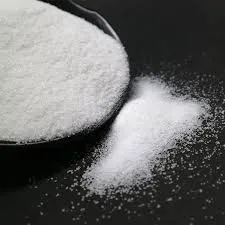Understanding API Definition in Pharmaceuticals
Active Pharmaceutical Ingredient (API) is a crucial aspect of pharmaceutical science and industry. It refers to the biologically active component in a drug that is responsible for its therapeutic effects. The quality, efficacy, and safety of an API are fundamental to healthcare, affecting everything from the drug's formulation to its final therapeutic outcome in patients. This article delves into the definition of API, its significance in pharmaceuticals, the regulatory frameworks governing its production, and the latest trends influencing its development.
What is an API?
An Active Pharmaceutical Ingredient (API) is any substance or combination of substances used in a finished pharmaceutical product that is intended to provide pharmacological activity or benefit. For example, if we consider a commonly used medication like ibuprofen, the API is ibuprofen itself, while the other ingredients in the tablet form—such as binders and fillers—are classified as excipients. Understanding the role of APIs is vital for pharmaceutical companies, researchers, and healthcare professionals alike.
Significance in Pharmaceuticals
The significance of APIs cannot be overstated. They are the core of pharmaceutical products, playing a pivotal role in determining both the functionality and safety of medications. The effectiveness of a drug is often directly related to the quality of its API. Therefore, stringent specifications must be established to ensure that the API meets the required standards for purity, potency, and stability.
Furthermore, APIs are critical in the ongoing fight against diseases. The development of new APIs can lead to groundbreaking treatments, providing hope for conditions previously considered untreatable. For instance, the rapid development of mRNA APIs for COVID-19 vaccines marked a significant milestone in pharmaceutical history.
Regulatory Framework
api definition pharmaceutical

The production and approval of APIs are subject to rigorous regulatory oversight to ensure safety, quality, and efficacy. Organizations such as the U.S. Food and Drug Administration (FDA), European Medicines Agency (EMA), and other global regulatory bodies establish guidelines that companies must adhere to when developing APIs. These regulations cover various aspects, including good manufacturing practices (GMP), quality control, and performance testing.
Compliance with these regulations is essential not only for the safety of patients but also for the integrity of the pharmaceutical market. The complexity of API manufacturing often requires the collaboration of different stakeholders, including raw material suppliers, manufacturers, and healthcare providers. As a result, transparency in the supply chain and adherence to regulatory standards are increasingly prioritized to prevent product recalls and ensure patient safety.
Trends Influencing API Development
In recent years, several trends have emerged that significantly impact API development. One crucial trend is the move towards personalized medicine, which necessitates APIs tailored to individual patient needs. Advances in biotechnology and genomics are enabling the creation of novel APIs that can cater to specific genetic profiles and conditions.
Additionally, the rise of biologics and biosimilars is transforming the landscape of pharmaceuticals. These products, derived from living organisms, pose unique challenges in API production due to their complexity. The development process of biologics often involves intricate manufacturing techniques, rigorous stability testing, and an extensive regulatory pathway.
Moreover, the globalization of the pharmaceutical supply chain has led to increased scrutiny regarding the origin and production of APIs. Companies are now more focused on securing robust supply chains and ensuring that their raw materials are sourced responsibly and sustainably.
Conclusion
The role of Active Pharmaceutical Ingredients in the pharmaceutical industry is both fundamental and complex. As the cornerstone of drug formulation, APIs govern the effectiveness and safety of medications. Regulatory frameworks ensure that these ingredients meet the necessary standards, while emerging trends in personalized medicine and biotechnology continue to shape the future of API development. As we navigate through new challenges and opportunities in pharma, understanding the intricacies of APIs will remain vital for enhancing patient outcomes and advancing global health.

